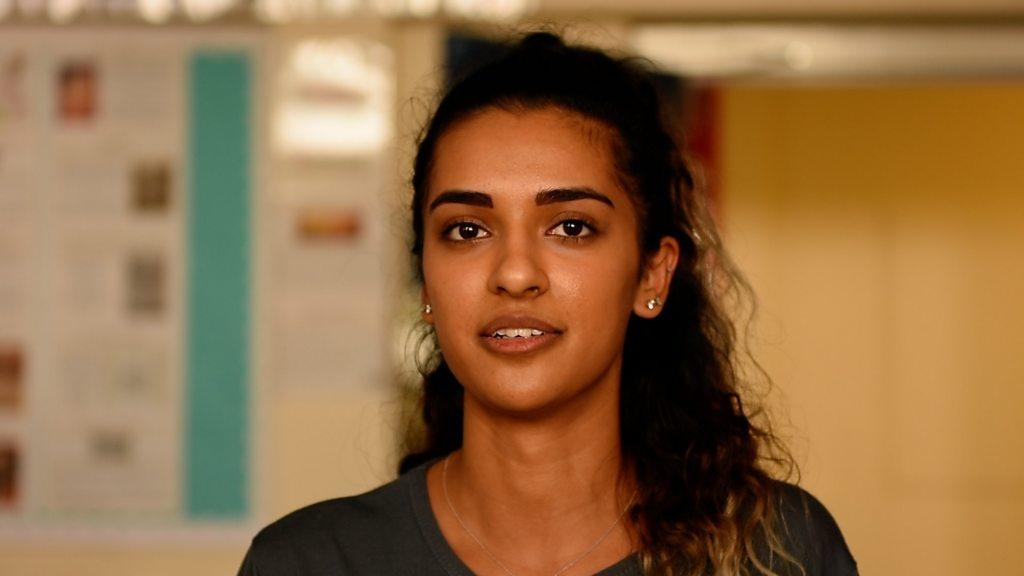Scholarships set up in response to Black Lives Matter
- Published
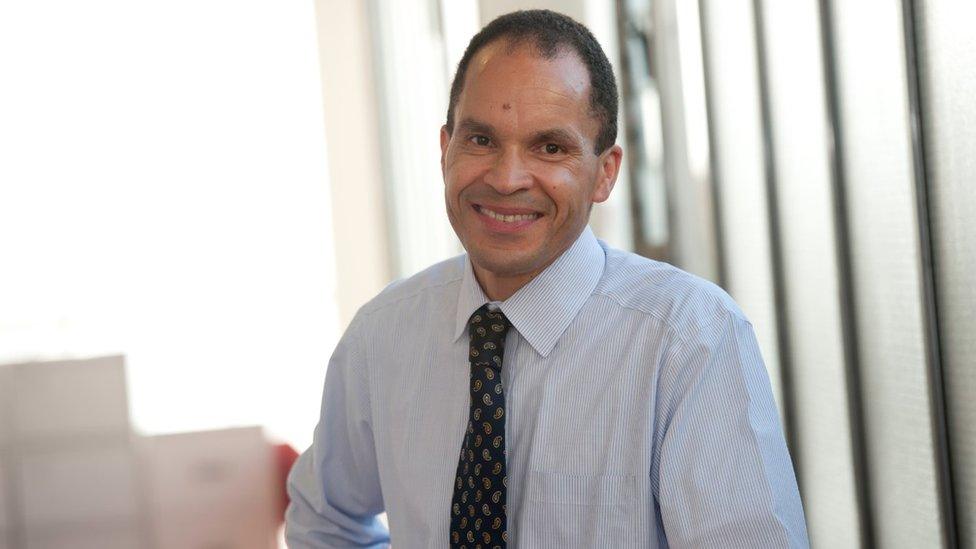
Prof Richard Oreffo is a musculoskeletal scientist at the University of Southampton
A science professor has set up a scholarship fund for disadvantaged black students in response to the Black Lives Matter protests.
Prof Richard Oreffo had the idea of setting up the fund three years ago but "knew no-one would entertain the idea".
After black rights protests led to social media campaigns he decided to set up the fund to achieve real change.
Prof Oreffo credits his academic success to the support he received from his primary school in Bristol.
He moved to the city in 1969 at the age of eight and attended Westbury Park Primary, where the head teacher Mr Gutsell, "took my brother and myself under his wing".
"He enthused me for education and he just changed my life," Prof Oreffo said.
The Cowrie Scholarship Foundation aims to fund 100 undergraduate places by asking universities and businesses to commit to paying tuition fees for three students at a time.
Newcastle University was the first to pledge funds and York University has doubled its commitment and will pay for six students' tuition fees.
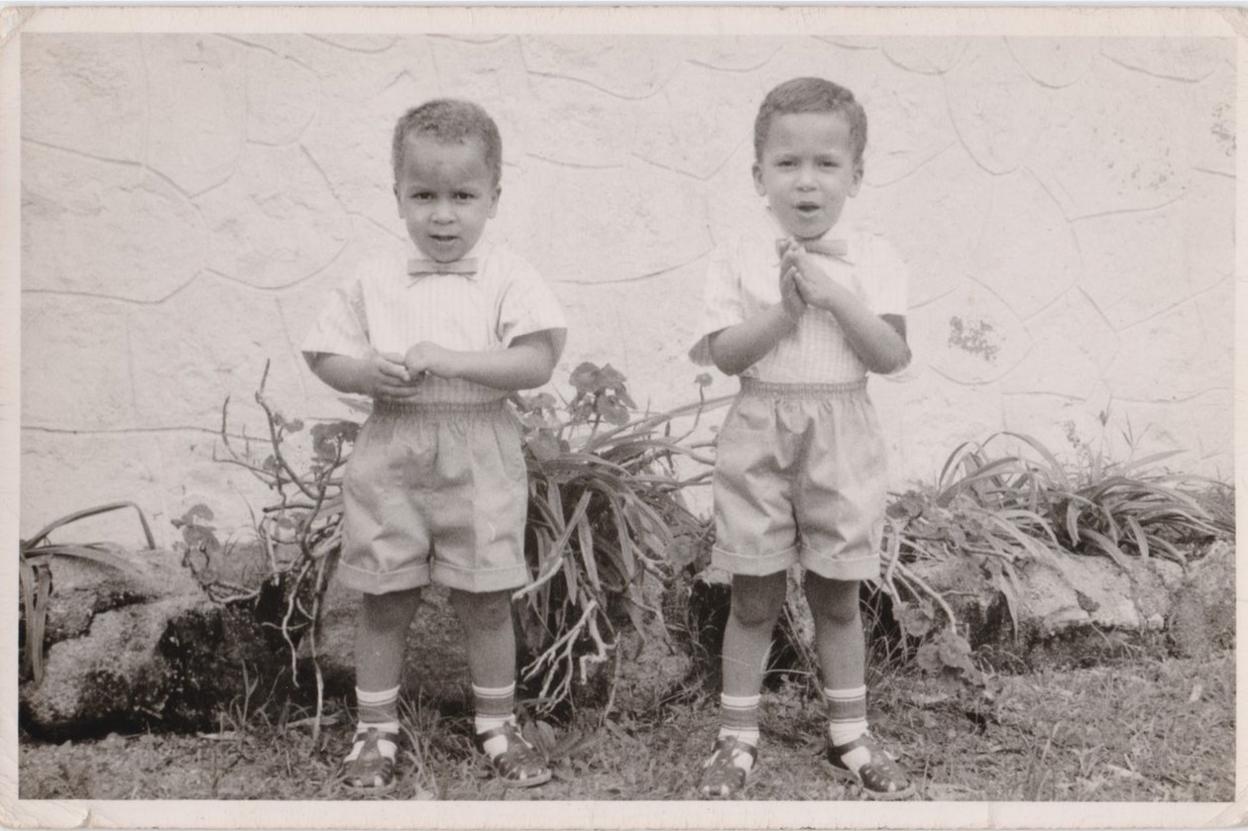
Twins Richard (l) and his brother Victor spent their early childhood in Nigeria
"It was troubling times in the 70s and 80s to be black and mixed race.
"The catalyst for setting up the foundation was the tragic death of George Floyd," said Prof Oreffo, who teaches Musculoskeletal Science at the University of Southampton.
"I wanted to make a difference and this was the opportunity."
Prof Oreffo was born in London in 1961 and his family moved to Nigeria when he was 12 months old.
His parents then relocated to Bristol, leaving the children behind, to take up his father's scholarship at the University of Bristol.
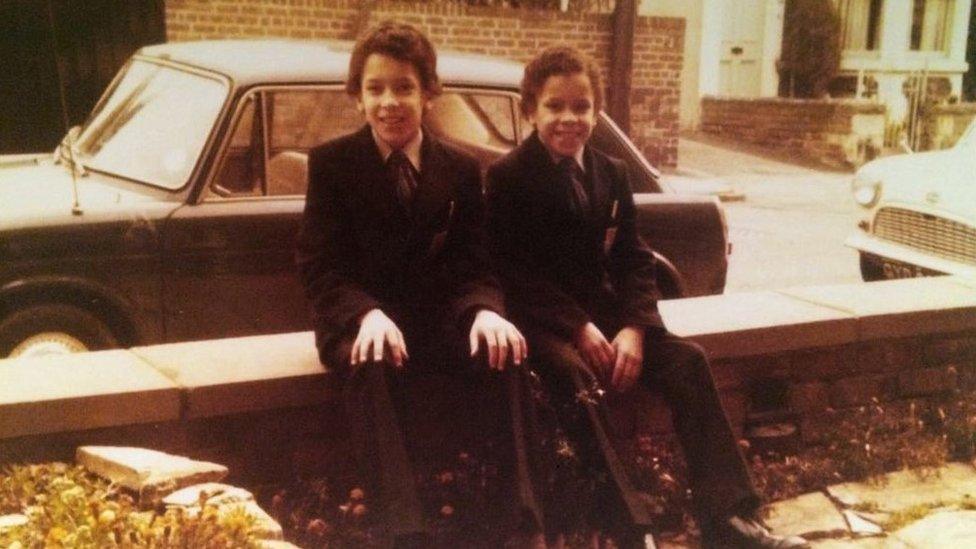
Richard (r) and his brother lived in Bristol - this was taken when they were about 11 years old
Soon afterwards the civil war broke out and the twins became refugees for nearly three years.
In December 1969 the Red Cross flew the siblings to the UK.
"It was a huge change in the environment, the ability to have almost anything you wanted, heat, light, food, compared to fleeing a war zone," said Prof Oreffo.
To date the fund has raised enough money to support 33 students studying in a Russell Group university, the first of whom will start in September.
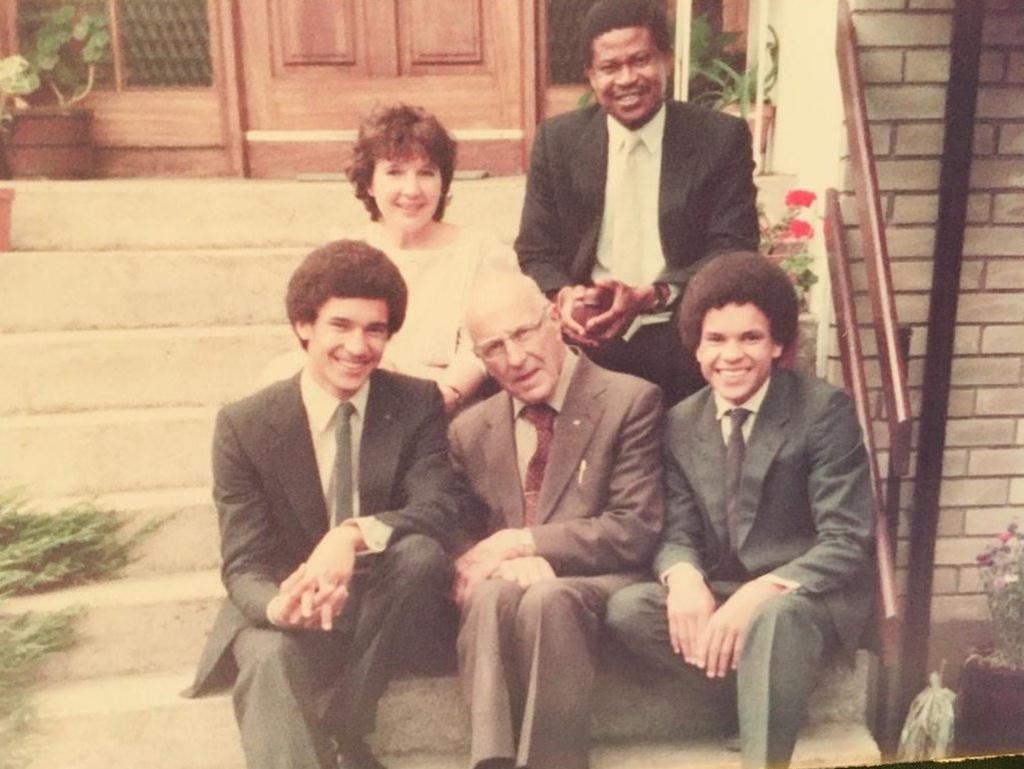
18-year-olds Richard (r) and Victor with their grandfather and parents
He said: "Nelson Mandela said education was the powerful weapon you can use to change the world and that is so true."
"Because of what happened to me, because of the foundation from Westbury Park Primary School, I was fortunate enough to go to Liverpool University and gain two doctorates from Oxford University.
"I'm doing what I love which is bone repair and how to repair our bones in an ageing population."
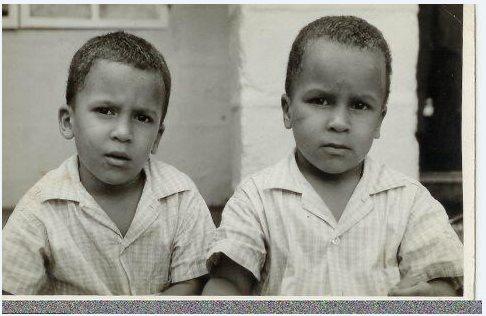
This photo was taken during the Nigerian Civil War

Follow BBC West on Facebook, external, Twitter, external and Instagram, external. Send your story ideas to: bristol@bbc.co.uk , external
Related topics
- Published11 October 2019
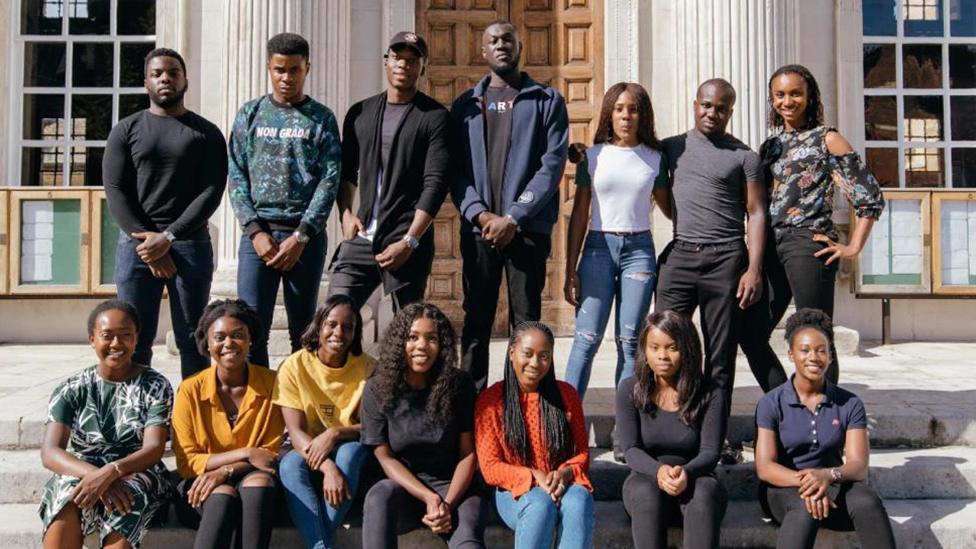
- Published22 March 2017
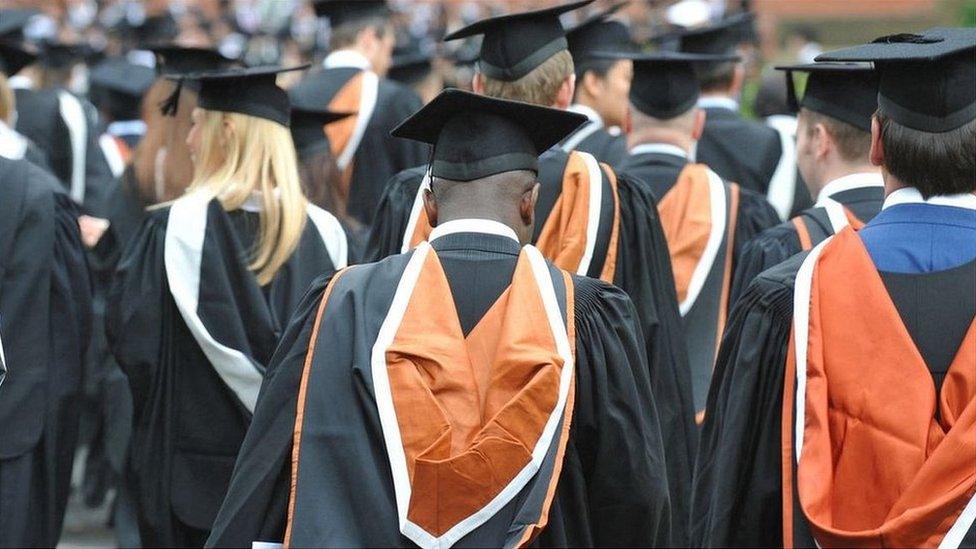
- Published17 January 2020
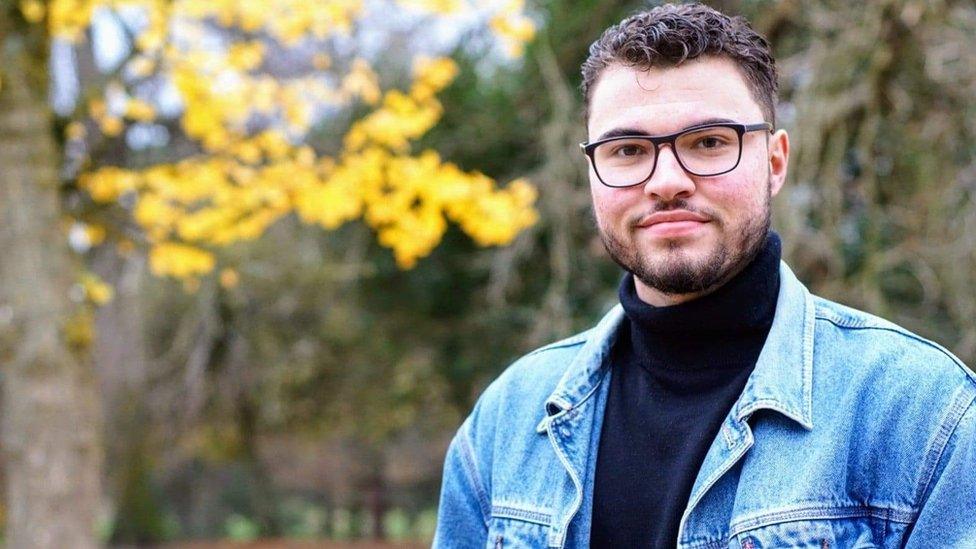
- Published26 November 2018
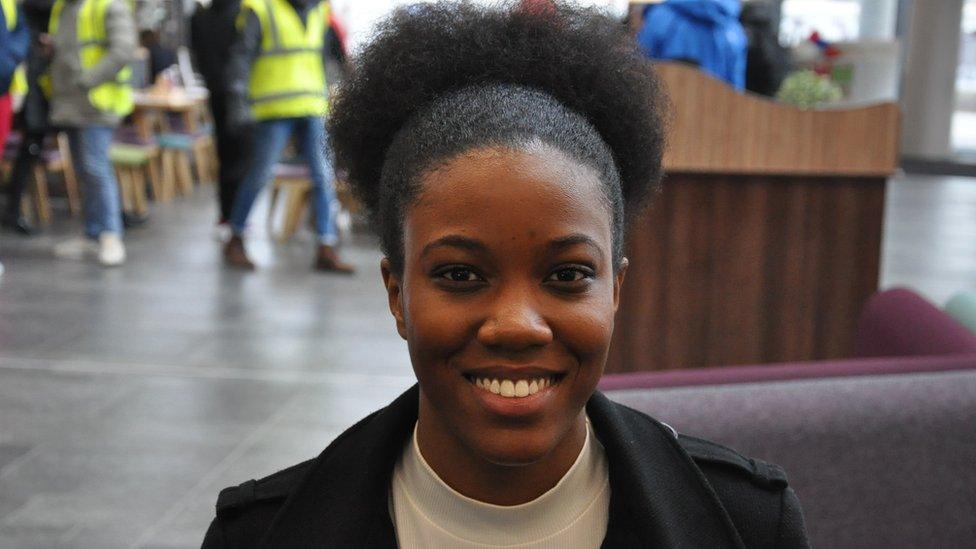
- Published17 July 2011
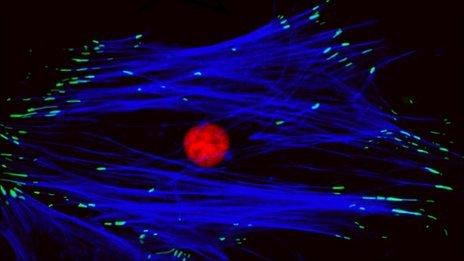
- Published21 June 2020
